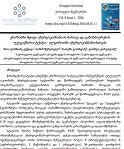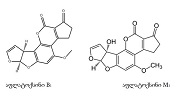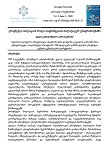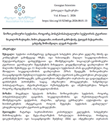Investigating global mobile network traffic dynamics and drivers
Downloads
This paper delves into the dynamic evolution of mobile network traffic, driven by unprecedented growth in mobile data demand and the rapid deployment of cutting-edge technologies such as 5G and the Internet of Things (IoT). As global dependency on mobile connectivity intensifies, fueled by increasing consumer demand for streaming services, real-time communication, and smart device integration, the telecommunications infrastructure faces critical challenges. This document thoroughly examines these trends, identifies the primary challenges impacting network capacity and service quality, and explores innovative technological solutions designed to address these issues. Key areas of focus include the impact of massive IoT deployments, the strategic importance of advanced network technologies such as Software-Defined Networking (SDN) and Network Functions Virtualization (NFV), and the essential role of enhanced spectrum efficiency technologies in managing and optimizing network traffic. Additionally, the paper discusses the variances in mobile network traffic growth across different regions, influenced by varied economic conditions, technological adoption rates, and regulatory frameworks. This analysis not only charts a pathway for future technological advancements but also equips stakeholders with the knowledge to make informed decisions that will shape the future of mobile telecommunications. The insights provided here aim to facilitate a deeper understanding of the network demands and responses necessary to support the ongoing surge in global mobile data traffic, ensuring robust, scalable, and efficient mobile networks for future generations.
Downloads
Ericsson. (2023). “Ericsson Mobility Report”. Retrieved April 05, 2024, https://www.ericsson.com/en/reports-and-papers/mobility-report
Robert Wyrzykowski. OpenSignal. (2024). The Opensignal Global Reliability Experience Report, Retrieved April 04, 2024, https://www.opensignal.com/2024/02/08/the-opensignal-global-reliability-experience-report
Speedtest Global Index. (2024). “Median Country Speeds March 2024”, Retrieved April 04, 2024, https://www.speedtest.net/global-index
ITU Statistics. (2023). “Individuals using the Internet”, Retrieved March 04, 2024 https://www.itu.int/en/ITU-D/Statistics/Pages/stat/default.aspx
GSMA. (2019). “THE 5G GUIDE”. Retrieved April 01, 2024, https://www.gsma.com/wp-content/uploads/2019/04/The-5G-Guide_GSMA_2019_04_29_compressed.pdf
Murjikneli G.G. Begiashvili K.D. (2018). INTERFERENCES IN CONTEMPORARY MOBILE COMMUNICATION SYSTEMS AND MITIGATION WAYES ANALYSIS, “Energy: Regional Problems and development opportunities”. 25.10.2018-26.10.2018
3GPP. (2024). Retrieved April 04, https://www.3gpp.org/specifications-technologies/68-5g
OASIS for MQTT. (n.d). Retrieved April 05. https://mqtt.org/
IETF for CoAP. (n.d). Retrieved April 05. https://datatracker.ietf.org/doc/html/rfc7252
OMA SpecWorks for LwM2M. (n.d). Retrieved April 05. https://omaspecworks.org/what-is-oma-specworks/iot/lightweight-m2m-lwm2m/
Givi Murjikneli, Kote Begiashvili. (2023) Evaluation of the quality indicators of mobile connection based on the use of artificial intelligence methods. MODERN CHALLENGES AND ACHIEVEMENTS IN INFORMATION AND COMMUNICATION TECHNOLOGIES. ISBN 978-9941-512-06-3. 85-91
Copyright (c) 2024 Georgian Scientists

This work is licensed under a Creative Commons Attribution-NonCommercial-NoDerivatives 4.0 International License.


























































































































































































































